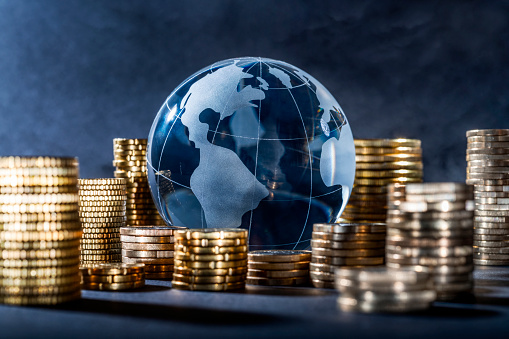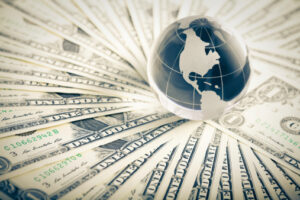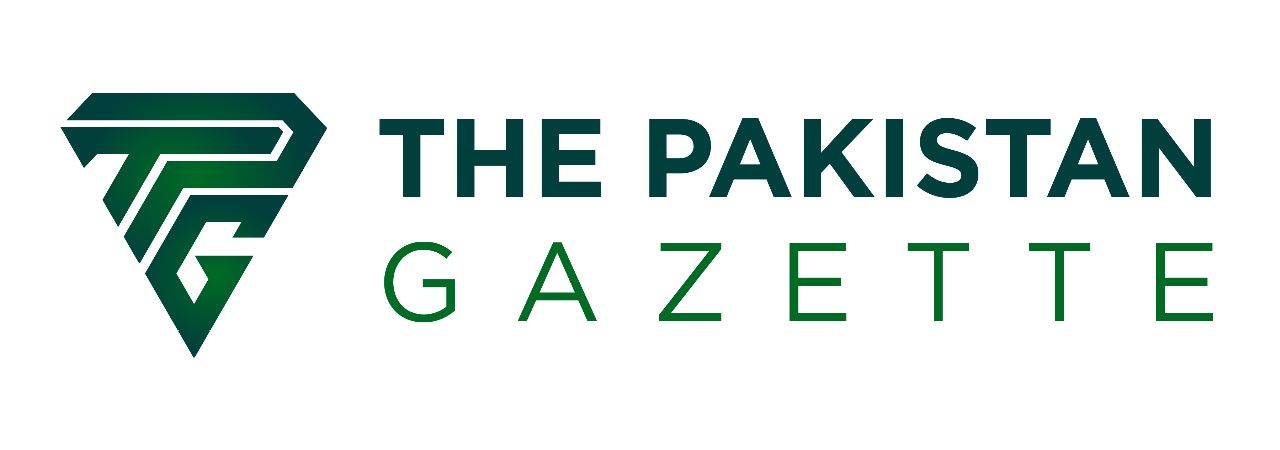
Global Economy: Trends, Challenges, and Opportunities

Introduction
The global economy is an intricate web of interconnected markets, nations, and industries that drive economic growth and prosperity. Understanding the trends, obstacles, and opportunities that influence the global economy is essential as trade, investment, and technology bring the world closer together. We will examine the current situation of the global economy in this article, identifying significant trends and problems and examining upcoming opportunities.
Trends in the Global Economy
Economic Growth and Emerging Markets
Over the past few decades, the global economy has grown steadily despite recurring downturns and uncertainties. The rise of the world economy has been significantly fueled by emerging markets, particularly those in Asia. For instance, China and India have become global economic giants, with impressive growth rates during the previous 20 years.
The International Monetary Fund (IMF) forecasts global economic growth of 2.9% in 2023, versus 2.7% in last October with emerging and developing nations predicted to grow faster than mature economies. This pattern emphasises the expanding significance of emerging markets and their potential for advancing the world economy.
Technological Advancements and Digital Transformation
The evolution of the world economy has been greatly influenced by technological advancements. Digital technologies like artificial intelligence, blockchain, and the Internet of Things (IoT) have grown quickly, causing huge disruptions in a variety of industries and changing business structures.
Digital transformation has enabled businesses to streamline operations, enhance efficiency, and expand their reach globally. For instance, e-commerce has experienced rapid expansion, revolutionising the retail industry and giving companies access to a large worldwide customer base. Additionally, technical development has encouraged innovation and produced new economic sectors, leading to the creation of jobs and economic expansion.
Sustainable Development and Green Initiatives
Addressing environmental challenges and promoting sustainable development have become key priorities in the global economy. Governments, corporations, and consumers are all becoming more aware of how crucial it is to move towards a resource- and carbon-efficient economy.
Low-cost and supportive government policies have led to tremendous expansion in the renewable energy sector. Global renewable energy capacity reportedly reached 2,799 gigawatts in 2020, with solar and wind energy leading the trend, according to the International Renewable Energy Agency (IREA). In addition to assisting in the fight against climate change, the switch to renewable energy sources also offers potential for economic expansion and employment development.
Challenges in the Global Economy
Trade Tensions and Protectionism
The global economy faces enormous hurdles as a result of trade disputes and protectionist policies. Trade tensions between large economies, including the US and China, have resulted in the introduction of tariffs and other trade restrictions, upsetting global supply networks and stifling economic progress.
The COVID-19 epidemic and persistent trade tensions caused a 13% to 32% decline in global merchandise trade volume in 2020, according to the World Trade Organisation (WTO). The benefits of globalisation are in danger due to the increase of protectionism, which also impedes international cooperation and slows down economic growth.
Income Inequality and Social Disparities
While the global economy has witnessed overall growth, income inequality remains a persistent challenge. The gap between the rich and the poor has widened in many countries, posing social and economic risks.
According to Oxfam, the wealth of the world’s billionaires surged by $5 trillion in the pandemic since the record begins, while billions of people struggled to survive amid the COVID-19 pandemic. Addressing income inequality requires inclusive economic policies, investments in education and healthcare, and measures to enhance social mobility.
Geopolitical Uncertainties and Regional Conflicts
Geopolitical uncertainties and regional conflicts can have a significant impact on the global economy. Tensions between nations, trade disruptions, and political instability create an environment of uncertainty that hampers investment and economic growth.
For example, the ongoing trade war between the United States and China, coupled with political tensions in the Middle East, have led to increased volatility in global financial markets. Finding diplomatic solutions, promoting international cooperation, and fostering stability are vital to mitigating the impact of geopolitical uncertainties on the global economy.

Opportunities in the Global Economy
Digital Transformation and Innovation
The digital transformation wave offers immense opportunities for businesses and economies to thrive. Embracing digital technologies can help companies gain a competitive edge, enhance productivity, and reach new markets. Governments can invest in digital infrastructure, promote digital literacy, and foster innovation to unleash the full potential of the digital economy.
Sustainable Investing and Green Technologies
The transition to a sustainable and low-carbon economy presents numerous opportunities for investment and economic growth. Clean energy technologies, such as solar and wind power, energy-efficient solutions, and sustainable infrastructure, can create jobs and drive economic development while addressing climate change and environmental concerns.
Global Collaboration and Multilateralism
Global challenges require global solutions. Strengthening international cooperation and fostering multilateralism is key to addressing the complex challenges faced by the global economy. Collaborative efforts to combat climate change, promote free trade, and ensure a fair and inclusive global economic system can create a more stable and prosperous world.
Conclusion
Dynamic trends, significant obstacles, and exhilarating chances all influence the world economy. Emerging economies, technology developments, and sustainable development have enormous potential, but there are also major threats from trade disputes, wealth disparity, and geopolitical unpredictability. Policymakers, companies, and individuals must continue to be flexible, inventive, and devoted to sustainable and inclusive growth in order to successfully navigate this complicated environment. For the benefit of all, we can create a strong and thriving global economy by seizing the possibilities, tackling the problems, and encouraging international cooperation.
Admin at The Pakistan Gazette

